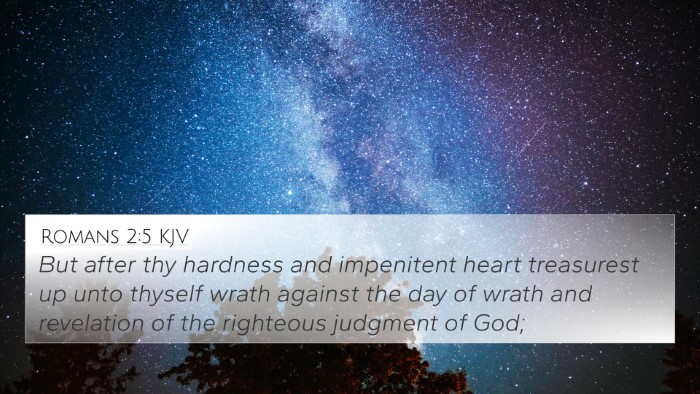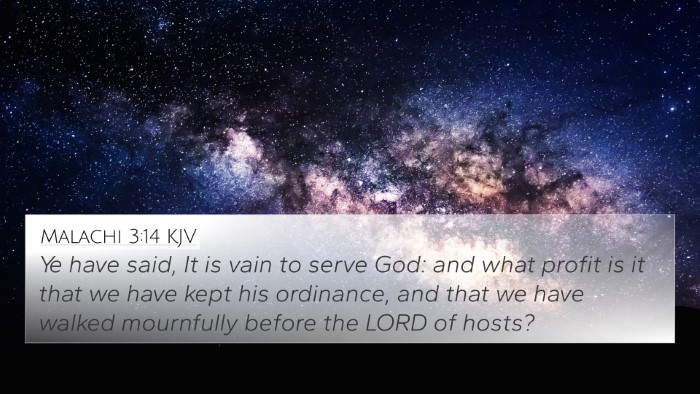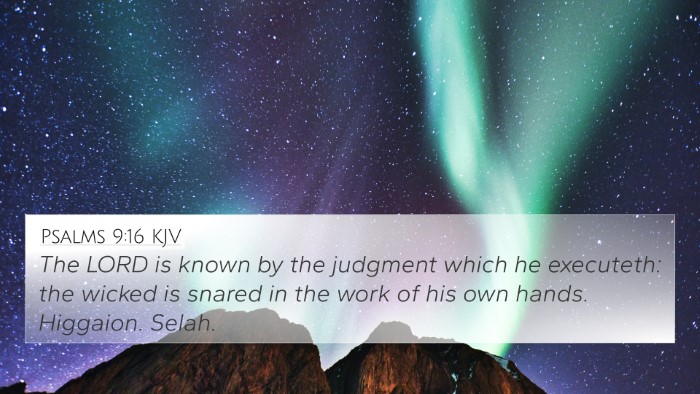Psalms 58:11 - Summary and Meaning
Bible Verse: "So that a man shall say, Verily there is a reward for the righteous: verily he is a God that judgeth in the earth."
Insights and Interpretations
Psalms 58:11 concludes with a profound statement about divine justice and reward for righteousness. By examining various public domain commentaries, we gain a deeper understanding of its significance.
Matthew Henry's Commentary
Henry emphasizes the assurance of a final recompense for the righteous, highlighting that their piety will not go unrewarded. He notes the contrast between the state of the wicked and the ultimate vindication of the godly. This verse serves to remind believers of the certain justice of God amidst apparent inequities in life.
Albert Barnes' Commentary
Barnes focuses on the idea that the acknowledgment of God's justice leads to a recognition of righteousness. He interprets the verse as an affirmation that God's judgment is both fair and necessary, causing people to proclaim the truth about divine justice. Through this, believers are encouraged to maintain faith in God's righteous governance.
Adam Clarke's Commentary
Clarke elucidates the link between righteousness and divine judgment, positing that God’s judgments serve as a clear pointer to His nature. He points out the inevitable acknowledgment of God as a judge, leading to the consequent belief in a future reward for the righteous.
Cross-References
This verse can be linked to several other scriptures that reinforce the themes of divine justice and reward for the righteous:
- Psalm 1:6: "For the LORD knows the way of the righteous: but the way of the ungodly shall perish."
- Ecclesiastes 3:17: "I said in mine heart, God shall judge the righteous and the wicked: for there is a time there for every purpose and for every work."
- Matthew 25:46: "And these shall go away into everlasting punishment: but the righteous into life eternal."
- John 5:29: "And shall come forth; they that have done good, unto the resurrection of life; and they that have done evil, unto the resurrection of damnation."
- Romans 2:6: "Who will render to every man according to his deeds."
- 2 Thessalonians 1:6-7: "Seeing it is a righteous thing with God to recompense tribulation to them that trouble you; and to you who are troubled rest with us, when the Lord Jesus shall be revealed from heaven with his mighty angels."
- Revelation 20:12: "And I saw the dead, small and great, stand before God; and the books were opened: and another book was opened, which is the book of life: and the dead were judged out of those things which were written in the books, according to their works."
Thematic Connections
The themes of justice, reward, and divine oversight provide fertile ground for comparative Bible verse analysis. Psalms 58:11 establishes a significant dialogue across scriptures, revealing the interconnectedness of biblical teachings regarding God’s justice.
It encourages believers to explore connections between Bible verses by digging into related themes, thereby enriching one’s understanding of scriptural messages.
How to Cross-Reference
Utilizing a bible concordance can significantly aid in finding bible cross-references for any given verse, including Psalms 58:11. Here are some tools and methodologies for effective cross-referencing:
- Bible Cross-Reference Guide: Understand how verses relate by consulting guides that categorize themes and topics.
- Bible Chain References: Following thematic or sequential links through scripture can reveal deeper insights.
- Comprehensive Bible Cross-Reference Materials: Scholars often compile extensive resources to explore these connections.
Conclusion
Psalms 58:11 serves as a powerful reminder of God's eventual justice for the righteous. Through insights from various commentaries, cross-referencing, and thematic explorations, readers are equipped to delve deeper into biblical understanding. This verse, much like others within the Psalms, not only speaks of immediate concerns but also challenges believers to maintain hope in divine justice and rewards that transcend earthly observations.



















